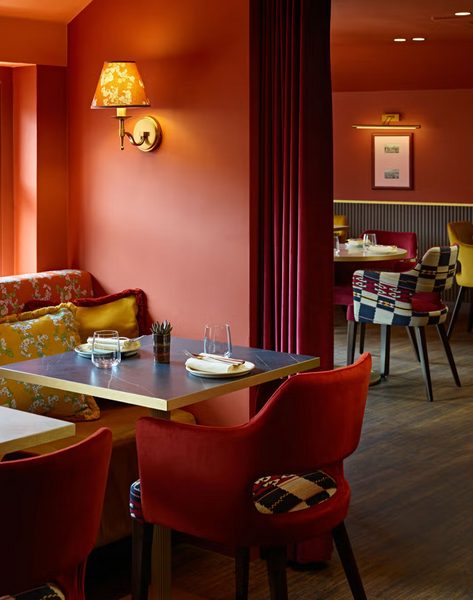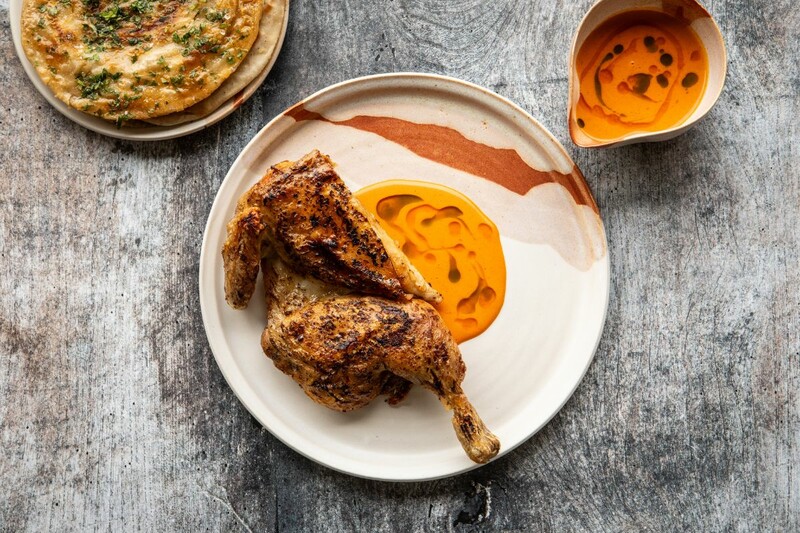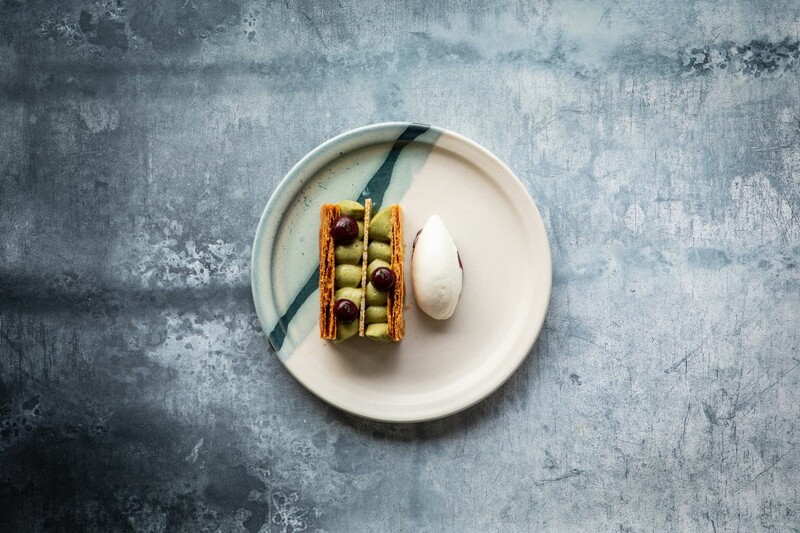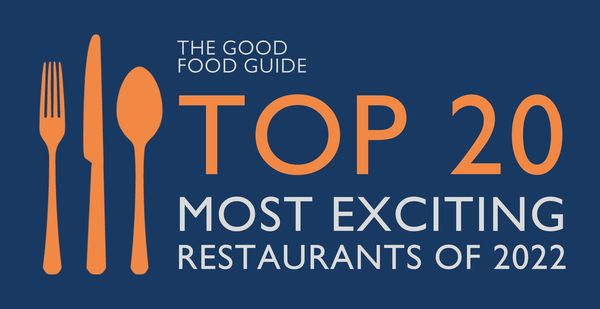The restaurant, which stands in an enviably dainty spot behind a courtyard terrace and a large maple tree, feels like its own little world. The interiors by 20.20 feature materials from Dar Leone, a contemporary design studio by Sierra Leonean-American artist Isatu Funna, evoke a real sense of place. Upholstery is decorated with multicolored kpokpo fabric with its signature geometric patterns. Tones of deep terracotta, mustard and orange-red create a lively warmth, with further character from the wallpaper, cushions and lampshades dotted with tropical West African flora. Set across two floors, it’s big enough to feel like a destination and not too cramped, but intimate enough for a cosy, neighbourhood feel.
Visitors to Shwen Shwen who have followed Maria Bradford’s journey from accountancy to a colourful career in food, will recognise her distinctive take on Sierra Leonean cuisine and wider Afro-fusion. The menus feel like a natural extension of the upmarket catering and supper club business she launched in 2017 based at her Kent studio. Dishes draw from her childhood in Freetown where she learned to cook, and cross-cultural culinary training, including at Leith’s.

Under bar snacks, you’ll find dishes like crispy yam croquettes with pancetta and leek (£6.50). Already proving popular is the lamb belly (£8.50). It’s served with shito (a Ghanaian pepper and dried crustacean condiment) and West African red palm oil (not to be confused with the commercial palm oil linked to mass deforestation). Small plates include romesco, basil and octopus grilled with kankankan (a smoky, aromatic spice blend for flame-cooking) for £15.30, or seasonal sides such as grilled asparagus with parmesan, shito and lemongrass gel (£9.50). Sharers for two are generous dishes like beef short rib in creamy coconut and groundnut sauce (£35.00), or subtly peppery spatchcock poussin with velvety palm butter (£28).

As well as covering decent ground across meat, fish and seafood, and vegetables and grains (in particular fonio, an ancient gluten-free West African ‘supergrain’ is available), we noted the range of flavour profiles across menu items. From more fiery notes to milder, earthier items, there’s options for differing tastes.
Reverence for dessert is not traditionally integral to West African cuisines; local sweets are often snacks. However desserts here feel considered, cleverly fusing European and global pastry concepts whilst still rooted in West African foodways (though one or two more options would be welcome). The moringa millefeuille (£9.00) is an example. One of the layers sandwiching the plush moringa leaf cream (adjacent to matcha with less bitterness) is a benneseed (sesame seed) wafer – a popular snack across West Africa.

For straightforward ordering, the £60 chef’s selection menu is good value and a strong overview of the food offering. Plant-based diners will appreciate the dedicated vegan set menu. Wine pairing can be added to both for £30. The international wine list spans from surrounding Kent, to Chile and Changu, as well as usual European suspects (Italy, France, Portugal etc.). Also global is the tea menu, recognising the growing appetite for no and low beverages that still feel special. You’ll find infusions from English peppermint to Malawi coffee leaf. Soft drinks like Karma’s nutty cola are stocked, using organic and fairtrade kola nut grown by Sierra Leone’s Mende and Temne communities (kola nut was key to original coca cola recipes as the name suggests). Cocktails are also canvases for West African flavours and ingredients. The Mende Heat stands out, juicy and fruit-forward and warm with spices like cinnamon.
The prettified but approachable, family-friendly plates demonstrate a careful balance of sophistication and comfort. On the Saturday night of our early visit there’s a full house of locals of diverse ages and backgrounds. Do we have a contender for next year’s Best Local Restaurants awards on our hands? It feels promising; Shwen Shwen looks set to add a unique, well-crafted dimension not only to the slowly expanding modern West African food scene in the UK, but to Kent’s lively restaurant scene too.
WHEN Saturday 6th June
WHERE 1-2, Well Court, Bank St, Sevenoaks TN13 1UN
FOLLOW @shwenshwenbymaria
BOOK shwenshwen.com
The Good Food Guide allows three to six months before anonymously inspecting a new restaurant. Look out for a full review coming soon.




